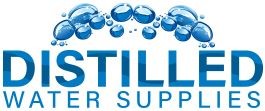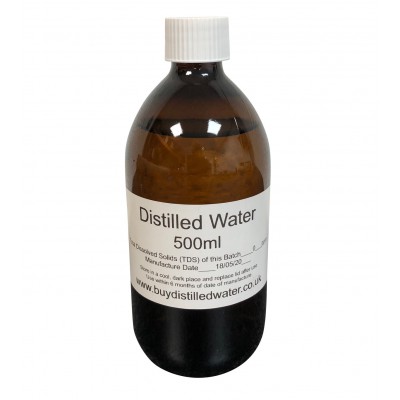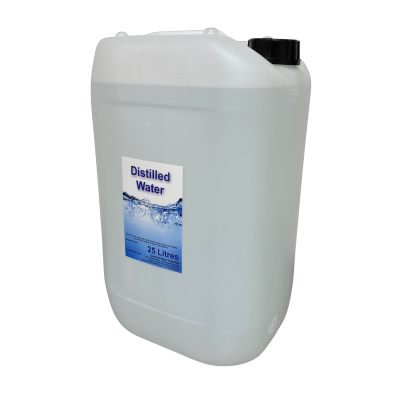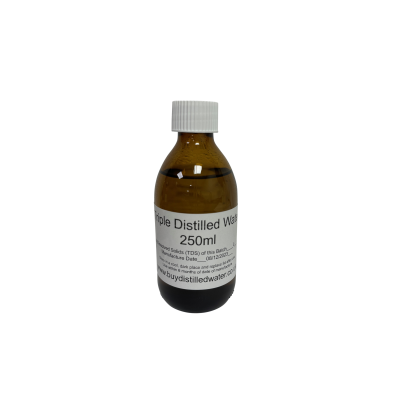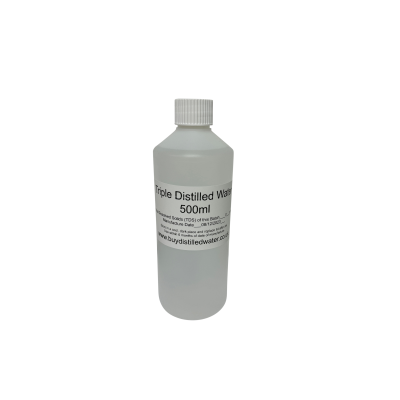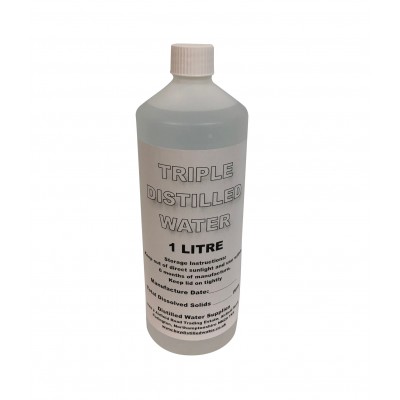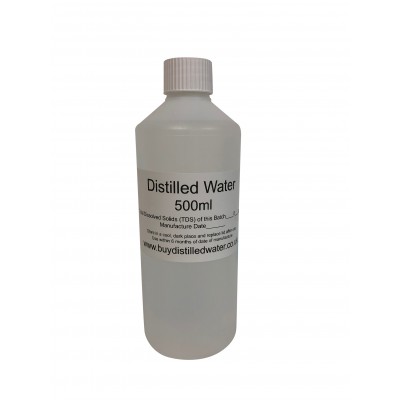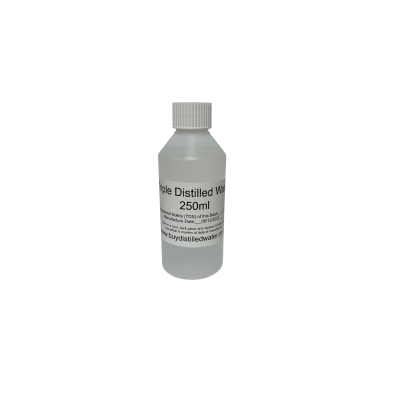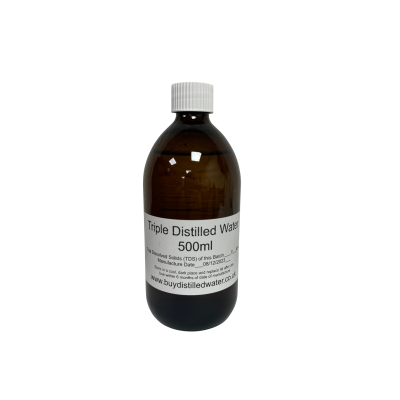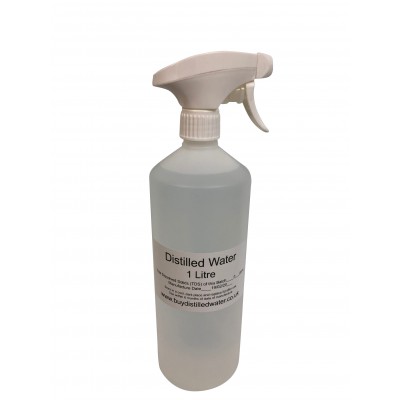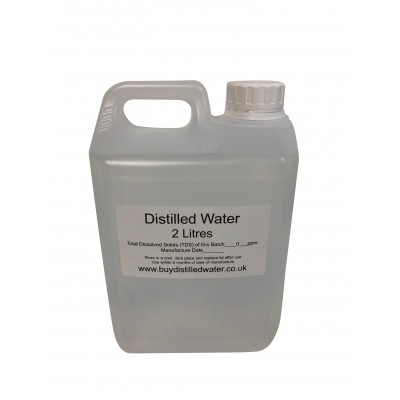What are the impurities found in tap water?
Tap water in the UK is treated to meet safety standards. However, despite rigorous treatment protocols (coagulation, filtration, chlorination), trace levels of contaminants can still be present. These impurities may come from:
- Natural sources (rocks, soil, wildlife)
- Agricultural runoff (pesticides, fertilisers)
- Industrial processes (heavy metals, chemical waste)
- Aging or corroded plumbing (lead, copper)
- Distribution systems (bacterial growth in pipes)
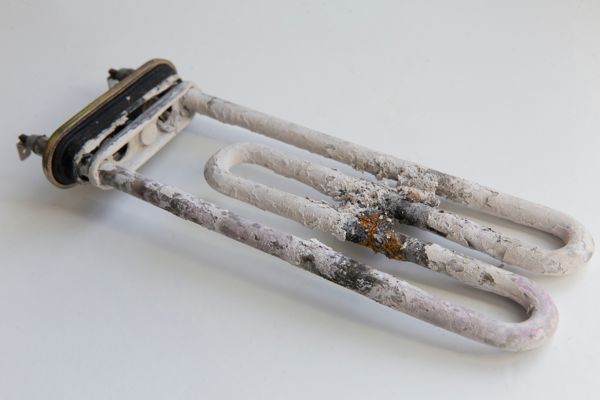
These chemicals can be drawn into the water by minerals and gases in the air, or eroded from the soil or rock. The integration of these dissolved materials are regarded as the ingredients that give water its title of 'pure water', which is actually a contradiction in terms, as water containing any form of foreign bodies, no matter how molecular can never be described as totally 'pure'.
The impurities that are found in water to give it its particular taste as well as causing such effects as hardness, caused by the presence of calcium or magnesium, colour, which is caused by the presence of iron in the water, going as far as possible poisoning caused by high concentrations of arsenic in the water or even radioactivity caused by the presence of radium.
Apart from these natural impurities that can gradually dissolve into water from its natural surroundings. There are also a number of forms of man-made contamination that can find their way into water. The most common are fertilisers and pesticides that can flow into water through overuse by the agricultural industry as well as toxic wastes and heavy metals from heavy industry.
On certain occasions, human effluent can leak into water systems through a fault in a sewage disposal system, However, and very thankfully, these occasions are few and far between.
The most common mineral impurities found in tap water are:
• Aluminum - Leached from the soil
• Arsenic - Leached from the soil
• Calcium - Leached from the soil
• Chlorine - Added as a disinfectant
• Copper - Leached from pipes
• Fluoride - Sometimes added for dental health
• Lead - Leached from underground pipes,
• Nitrates - Leached from the soil
• Phosphates - Leached from the soil/Agriculture
• Radium - From the breakdown of Radium-containing rocks
• Sodium - Leached from the soil/seawater
These are just a few of the more than 330* impurities that can be found in tap water. In most developed regions of the world water undergoes fairly high levels of filtration, and after which chlorine is introduced into the water in very low concentrations, making it suitable to use for most domestic applications. Water that has undergone a regular filtration process is known as potable water and can be drunk from the tap without excessive danger to health.
Tap water is inexpensive, but can still contain up to 800ppm of dissolved minerals and heavy metals as these are not removed during the filtration process. It is easy to see how over time, these minerals can build up and destroy heating elements in kettles and washing machines.
Distilled water is considered to be significantly more pure than tap water due to the process it undergoes during distillation. Distillation involves heating water to its boiling point, turning it into steam, and then cooling the steam back into liquid form. This process effectively separates water from the majority of its impurities, as most contaminants have different boiling points than water and are left behind during the vaporiaation stage.
Tap water, while generally treated and filtered by municipal water systems, can still contain a variety of impurities, such as minerals, heavy metals, chemicals, and even microorganisms. These impurities are not removed during standard filtration and disinfection processes that tap water undergoes before reaching your home. As a result, tap water will contain dissolved minerals and contaminants that can impact its taste, appearance, and safety for consumption.
In contrast, distilled water has been subjected to a more rigorous purification process, which is specifically designed to remove these contaminants. As water is heated and converted into steam during distillation, only the pure water molecules transition into the vapour phase, while most impurities are left behind. When the steam is cooled and condensed back into liquid form, the resulting water is significantly purer than before, with a majority of contaminants having been removed. This makes distilled water an ideal choice for applications that require high purity levels, such as medical, laboratory, and industrial uses, as well as for those who seek the purest form of water for drinking and cooking purposes.
Why Distilled Water is Often Seen as a Better Option than Tap Water
Nearly All Impurities Are Removed
- Distillation Process: Distilled water is made by boiling water until it becomes steam, then condensing the steam back into liquid form. This process effectively separates out the majority of contaminants—including minerals, heavy metals, and microorganisms—because they do not vaporise as easily as water.
- Resulting Purity: The end product is water with greatly reduced levels of dissolved solids, metals, and other potential impurities like nitrates or volatile chemicals.
Free of Chemical Additives
- No Residual Chlorine or Fluoride: Unlike UK tap water supplies that add chlorine, chloramine, or fluoride during treatment, distilled water does not contain these additives because they are left behind in the boiling chamber.
- Reduced Risk of Disinfection By-Products: Without chlorine or natural organics in the final product, the risk of trihalomethanes (THMs) or haloacetic acids (HAAs) is virtually eliminated.
Consistent Quality and Taste
- Neutral Flavour: Because salts and minerals are removed, distilled water has a very neutral taste—free from the metallic or chemical flavors sometimes associated with tap water.
- Reliable Quality Control: Our distilled water undergoes strict quality checks, ensuring each batch meets set purity standards.
Suitable for Sensitive Uses
- Medical and Laboratory Applications: Distilled water is often required in labs and hospitals because it does not interfere with tests or treatments that could be affected by extra minerals or impurities.
- Baby Formula and Special Dietary Needs: Many parents prefer distilled water for mixing infant formula, and some individuals with kidney or immune system concerns may find distilled water gentler on the body.
- Appliances and Electronics: Because of its low mineral content, distilled water reduces scale buildup in humidifiers, steam irons, and other devices that heat water.
*source: https://www.opencollege.info/do-you-know-whats-in-your-tap-water/
This 500ml amber glass bottle of Distilled Water is ideal for making Colloidal Silver and mixtures that need protection from sunlight
IN STOCK NOW! Our 25 litre Distilled Water drum is the most economical way to buy ultra pure distilled water from us. Perfect for jobs requiring large volumes such as research laboratories and industrial processes. The drum is made from food-grade HDPE and comes complete with a tamper-evident screw cap. For additional savings on larger orders, we can send the drums on a pallet to reduce packaging and delivery charges - Palletised delivery is available on quantities from 9 drums (see below).
Buy 25 litre drums of distilled water directly from the manufacturer. We use our own proprietary 6-step method to ensure our water is of the highest quality and it undergoes UV sterilisation prior to bottling to further reduce potential bacteria. Our water is 100% steam distilled, not just filtered, deionised, or reverse osmosis water. After you buy distilled water from us, keep the drum sealed and away from sunlight, storing it between 15-25°c.
IN STOCK NOW! 250ml bottles of our triple distilled water - Perfect for use at home for applications requiring ultra pure distilled water that has undergone distillation three times.
Triple Distilled Water improves on the purity of our regular distilled water. By undergoing the distillation process three times, each cycle further refines and purifies the water, ensuring that any remaining impurities are meticulously removed. Our triple process guarantees a level of purity that is unparalleled, making it an ideal choice for a variety of uses such as making colloidal silver and homemade cosmetics and soaps, ensuring that the final products are free from any impurities that could irritate the skin.
IN STOCK NOW! 500ml bottles of our triple distilled water - Perfect for use at home for applications requiring ultra pure distilled water that has undergone distillation three times.
Triple Distilled Water improves on the purity of our regular distilled water. By undergoing the distillation process three times, each cycle further refines and purifies the water, ensuring that any remaining impurities are meticulously removed. Our triple process guarantees a level of purity that is unparalleled, making it an ideal choice for a variety of uses such as making colloidal silver and homemade cosmetics and soaps, ensuring that the final products are free from any impurities that could irritate the skin.
The latest addition to our range of waters. This triple distilled water is batch made in laboratory glassware for applications requiring the highest purity levels. Water is distilled on day of dispatch for maximum freshness.
IN STOCK NOW! Our 500ml bottle of Distilled Water - Perfect for use at home in steam irons, humidifiers, steam generators etc.
IN STOCK NOW! 250ml bottles of our triple distilled water - Perfect for use at home for applications requiring ultra pure distilled water that has undergone distillation three times.
Triple Distilled Water improves on the purity of our regular distilled water. By undergoing the distillation process three times, each cycle further refines and purifies the water, ensuring that any remaining impurities are meticulously removed. Our triple process guarantees a level of purity that is unparalleled, making it an ideal choice for a variety of uses such as making colloidal silver and homemade cosmetics and soaps, ensuring that the final products are free from any impurities that could irritate the skin.
IN STOCK NOW! 500ml bottles of our triple distilled water - Perfect for use at home for applications requiring ultra pure distilled water that has undergone distillation three times.
Triple Distilled Water improves on the purity of our regular distilled water. By undergoing the distillation process three times, each cycle further refines and purifies the water, ensuring that any remaining impurities are meticulously removed. Our triple process guarantees a level of purity that is unparalleled, making it an ideal choice for a variety of uses such as making colloidal silver and homemade cosmetics and soaps, ensuring that the final products are free from any impurities that could irritate the skin.
Our handy 1 Litre bottle complete with 'spray' and 'jet' trigger spray. Perfect for regular home users as well as testing purposes.
IN STOCK NOW! Our 2 litre Distilled Water bottle is more economical that our 1 litre bottles, but still very easy to carry and pour. It comes complete with a tamper-evident screw cap
